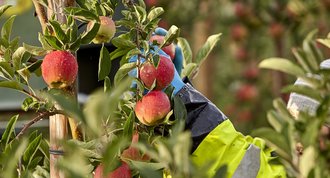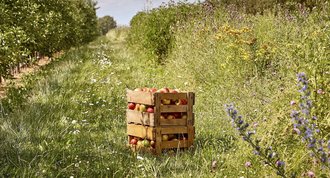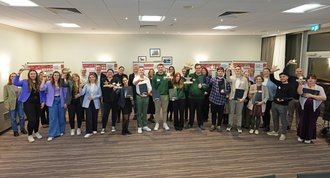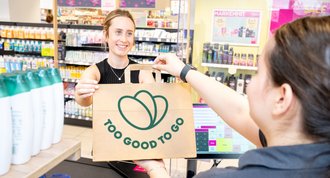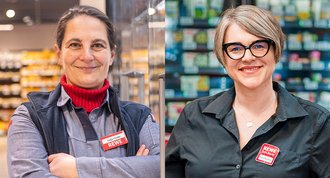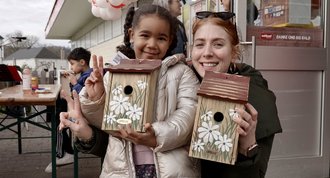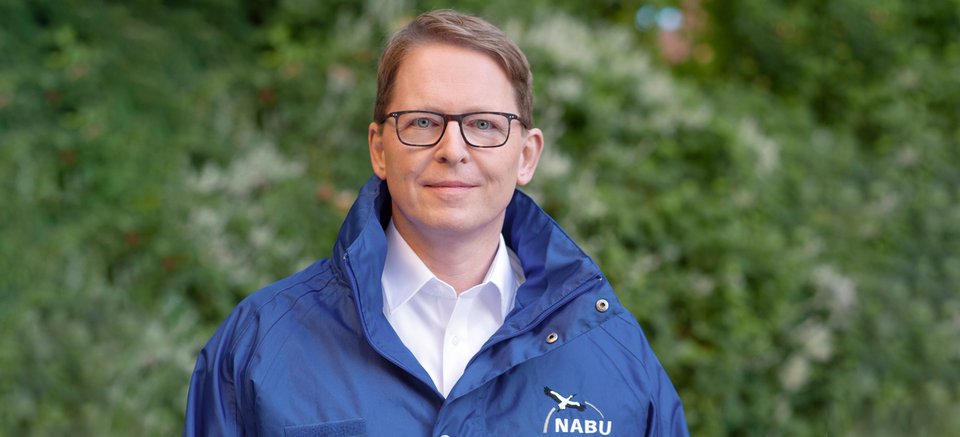
Acting instead of standing on the sidelines: REWE and NABU are joining forces to protect the climate. An interview with NABU President Jörg-Andreas Krüger explains why the focus is on peatlands, how REWE customers can make a contribution when shopping and where politicians now have a role to play.
Jörg-Andreas Krüger believes that new alliances are needed in the fight against climate change. The landscape architect has been President of the German Nature and Biodiversity Conservation Union (NABU) since 2019. In this interview, he explains why climate protection is not possible without informed consumers, what role retailers play in this and why NABU and REWE are working together to protect peatlands in Germany.
one: When it comes to climate protection, most people think of wind turbines, electric cars and perhaps saving the forests. You, on the other hand, are focussing on peatlands with the NABU climate fund. Why is that?
Jörg-Andreas Krüger: When it comes to environmental technology, power plants and heating systems, we are on the technical consumption side. In nature, however, many ecosystems store carbon from the atmosphere, for example in soils, as is the case with peatlands. These are so-called biogenic sinks, i.e. natural carbon sinks. We humans not only release a lot ofCO2 through oil and coal combustion processes, but have also started to destroy these natural carbon sinks and stores that have been maintained by nature for thousands of years. This is exactly what has happened to the peatlands.
one: What state are the peatlands in Germany in at the moment?
Jörg-Andreas Krüger: We have destroyed around 95 per cent of the former moors in Germany, i.e. drained them to make the land usable for agriculture and forestry or to extract peat. You can even see this in some places: Lower Saxony, for example, has the highest density of moorland of any federal state. When travelling there, you sometimes drive on roads that are a metre higher than the land to the left and right of them. They haven't built a road on the dyke - the landscape has sunk a metre because the peat has disappeared.
one: What consequences does this have for the climate?
Jörg-Andreas Krüger : Drainage releases huge amounts of carbon that have been sequestered for thousands of years into the atmosphere within a very short space of time. 6.7 per cent of Germany's total emissions come directly from peat soils. That is 53 million tonnes ofCO2 equivalents, which is an extremely high amount. And this is where we at NABU say: This is not possible. On the one hand, we need to saveCO2, but at the same time we also need to stabilise our biogenic sinks. Because peatlands store twice as much carbon as all the forests in the world. And they also have other important functions: Peatlands store water, and anyone who has followed the news in recent weeks will know how scarce water is in our landscapes at the moment. Every sponge in the landscape that holds water and buffers heavy rainfall is needed. Last but not least, moors are habitats for many endangered animal and plant species. We have to act now: If we manage to rewet these areas, the moor will regain its original function as a carbon store and the release of climate-damaging gases can be stopped.
one: What does rewetting mean in concrete terms? Do we simply wet the areas again ...?
Jörg-Andreas Krüger : Rewetting is not about putting the areas under water, but about achieving a water level of 5 to 15 cm below the surface, even in the summer months. However, almost all of the moors are in use and are farmed as arable land or grassland. Over the last 200 to 300 years, large-scale drainage systems have been built for this purpose, and many farms are involved. We have to take them all with us if we want to rewet these areas. And that's where the NABU climate fund comes in.
one: So you are starting with the farmers?
Jörg-Andreas Krüger: Exactly. We approach farmers and landowners who own moorland and support them - both financially and professionally - in rewetting the land. We look at what is feasible on an individual basis: can the area be renaturalised, i.e. turned back into a living, growing moor? This is perhaps the case for 10 to 20 per cent of peat soils in Germany. For the remaining areas, the aim is to change the agricultural use so that it can be wet, for example, so that suckler cow husbandry is possible, or reeds can be grown for insulation or packaging material. It is also about developing new farming options and value chains. We compensate for this disruption to production processes with a premium. Farmers then receive up to 65 euros per year per tonne ofCO2 saved per hectare, creating a viable Business Administration model, as they earn less from the land by keeping suckler cows. We compensate for this with the NABU climate fund.
„Thanks to our cooperation with REWE and the Climate Fund, we are fortunately in a position to make an offer. We not only make demands, but can also compensate financially.“
Jörg-Andreas Krüger
one: In Lower Saxony alone, around 5,000 to 8,000 farms manage land in moorland areas. Do you understand the concerns of those whose livelihood depends on it?
Jörg-Andreas Krüger: I can understand their concerns, yes! That's why we try to engage in dialogue as early and openly as possible, because we can only succeed together with the farmers. You have to understand: Some farmers have been farming on peatland for generations, it used to be an achievement to make this uneconomical land usable - and now we're coming along and saying it wasn't such a good idea after all. It's quite clear that we have to take people with us in this change. Every business is different, which is why direct dialogue is very important. Thanks to our collaboration with REWE and the Climate Fund, we are fortunately in a position to make an offer. We don't just make demands, but can also create a financial balance and work with farmers to consider which value creation models are suitable.
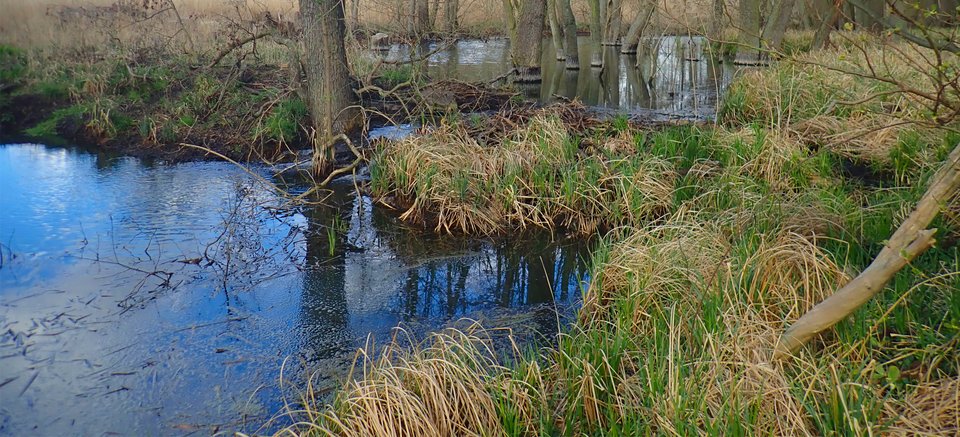
Healthy moors are natural climate protection. However, moors are still being drained today - to make the land usable for agriculture or to extract peat. This is why NABU has set up the NABU Climate Fund; REWE is providing at least 25 million euros over the next five years.
In a first project, this will finance the revitalisation of German moors. By purchasing REWE Bio and REWE Beste Wahl, customers automatically support the fund, which is also visible as a label on the products.
one: Is REWE purely a donor to the NABU Climate Fund?
Jörg-Andreas Krüger: REWE not only supports the NABU Climate Fund, but also brings the topic of climate protection closer to consumers through its campaigns, such as the current one with REWE Bio. We will meet regularly to see what is happening in the area of research and trialling. For example: from a retail perspective, are there opportunities for packaging material made from certain grasses that are grown on moorland? It's great to have a partner that not only supports renaturalisation, but also simply thinks along with us and develops visions for the future.
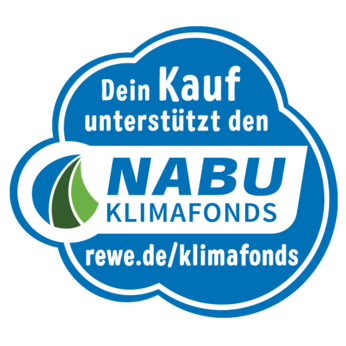 one: In future, NABU's logo will appear on REWE products and in REWE's communications. As an NGO, do you see this as a conflict of interest?
one: In future, NABU's logo will appear on REWE products and in REWE's communications. As an NGO, do you see this as a conflict of interest?
Jörg-Andreas Krüger: We have considered this very carefully. But we can't always say it's important and urgent, but we don't want to ally ourselves with anyone from trade and industry - or just take the money and not talk much about it. We need and want to stand shoulder to shoulder with our partners because it's all about a common cause. REWE Group and NABU have been partners for more than ten years and it's clear that you only take a step like this if you know each other well and have a relationship of trust. Of course, there are organisations that don't work with business at all. But we don't always want to be the ones standing on the sidelines and saying what needs to change or what can't be done. We want to be part of the solution. 2030 is practically the day after tomorrow, we are currently seeing every day what climate change means for us. We can't afford to take a passive stance. Otherwise, a completely different world awaits us, of which we are just getting a glimpse.
„2030 is practically the day after tomorrow, we are currently seeing every day what climate change means for us. We can't afford to take a passive stance.“
Jörg-Andreas Krüger
one: Keyword 2030: talking to farmers, developing new value creation models - that all takes time. Do we have that in view of climate change?
Jörg-Andreas Krüger: If we want to achieve the goals of the Paris Climate Agreement, we would have to renaturalise 50,000 hectares of moorland in Germany every year. That's five times the area of Sylt. We can only do that if we pick up the pace. I am confident that we will be able to take bigger and bigger steps in the coming years. What we need from the public sector and politicians is authorisation and procedural law. Because whenever we intervene in water resources and change irrigation and drainage systems, this always entails water law procedures and if these then take several years, that's bad.
one: How could it be better?
Jörg-Andreas Krüger: As NABU, we are strongly in favour of declaring renaturation to be an issue of public interest that we want to promote as a society. This would make authorisation easier. Also, the number of players who are driving the issue forward with their energy, contacts, networks and good ideas cannot be large enough. And to be honest, the government has never been that successful in developing value chains. That's why we say: It is important that investments are made, but above all the planning law framework must be created for good peatland restoration.
one: Where would you like to be with the NABU Climate Fund in five years' time?
Jörg-Andreas Krüger: I would like to be able to say: This is the fund that made the difference for peatlands. With strong and visible partners who are helping to develop solutions. Because a partnership also exists beyond money. That's why I think the communication about the fund, which REWE is currently doing with #umdenkbar, is so incredibly important. If we need ideas, value chains and a different policy, this can only be achieved with an informed population - informed customers. Do we have a population that signals to politicians? We also want peatland restoration to happen faster? Do we have customers in Germany who are open to alternative packaging materials? We are working on this hand in hand with REWE.
„If we need ideas, value chains and a different policy, this can only be achieved with an informed population - informed customers.“
Jörg-Andreas Krüger
one: Activating as many people as possible often requires a certain narrative - like Fridays for Future, for example. They have managed to mobilise many young people for the climate issue. Do you think the topic of peatland protection is sexy enough for this?
Jörg-Andreas Krüger: There is a difference between movement and implementation. What the Fridays have achieved is a social movement. This is extremely important in terms of political momentum and shaking up the population. Whenever it comes to implementation, however, movements reach their limits and implementation is needed. And you are legal, the issue of moorland and its significance is not immediately obvious to everyone. That's why it's so important to promote it. Everyone in Germany knows about the moors. It's not as if you've never seen them before. You just have to realise it. It won't have the same flight level as the Fridays, which are travelling at an abstract level: That's about achieving the 1.5-degree target and the issue of intergenerational justice. For us, it's about saying: We inform and we take people with us. We are reaching out to farmers and landowners and we are building this future now.
one: Inflation, war, the supply of gas - for many people, the world situation currently means great uncertainty. Are you worried that the issue of climate protection will take a back seat?
Jörg-Andreas Krüger: The changes we are currently experiencing are challenging, perhaps even overwhelming and frightening for many people. That's why it's important to start with things in a familiar environment that are tangible and understandable. With communication at the point of sale, with the opportunity to look at things and see what your own actions do. When we constantly read and hear in the media: The end is near, the apocalypse is coming - then of course we're not activating anyone. But if we break it down and show what we can really do, starting with the questions: How do I stabilise my landscape? And how do I, as a customer, consciously buy products that contribute to climate protection? Then we will also get people enthusiastic. I'm optimistic about that.
one: You talk about how we need to inspire and mobilise more people. That puts a lot of responsibility on the individual. Don't we need a more assertive policy instead?
Jörg-Andreas Krüger: We need both. Sustainability needs the economy and consumers as players, but politics must set and implement the socially accepted framework. That hasn't happened enough in the last 20 years. Voluntary commitments often don't lead to success. However, the pressure of the problem is now so great and visible that there is a willingness to make clear statements.
one: Which three switches would you personally flip politically - for environmental protection and nature conservation?
Jörg-Andreas Krüger: Firstly, an increase in theCO2 price. That would be both easy to decide politically and easy to implement. We need more transformation with regard to renaturalisation. This is to come with the Natural Climate Action Programme (ANK), but the four billion the government has earmarked for this is a small start compared to what needs to be done. And we urgently need more money and initiatives for the global South, both in terms of food security and support for climate protection.
one: Climate change is a global problem. However, with the NABU Climate Fund, you are starting in Germany. What impact do climate protection measures have on your own doorstep?
Jörg-Andreas Krüger: Our actions influence the climate at landscape level. You notice this when you drive out into the countryside and can breathe much cooler, fresher air. As soon as you approach the city again, the temperature rises with every kilometre. For example, I spend a lot of time travelling in Brandenburg and it's often eight degrees cooler there than in Berlin. That's when you realise how forests, green corridors in the city, cold air corridors and street trees can change our living climate.
one: Consumers have to make a lot of purchasing decisions every day: How are they supposed to keep track of the consequences of each one?
Jörg-Andreas Krüger: You can start with my grandmother's saying: As little as possible, as seasonal as possible, as regional as possible. You're on the right side of that. Then we need transparency about the origin of products: Are those strawberries or asparagus from Chile, or potatoes from Egypt? We are trying to address this through communication with the associations and would also like retailers to stop offering certain products at all. That has already happened to some extent, but there is still room for improvement. Or it could be regulated via theCO2 price- this would make some products unattractive from a competitive perspective. Price is a signal. And everyone can look at their meat consumption: On average, we currently eat twice as much meat as recommended by the German Nutrition Society. We need to reduce this. Not only for the sake of the climate, but also because we use huge areas of arable land in Germany and around the world to grow animal feed. If we want to combat world hunger, our food must not end up as feed in factory farming.
one: Finally, what gives you hope that the climate targets that have been set - i.e. limiting global warming to a maximum of two degrees - are achievable?
Jörg-Andreas Krüger: The more the consequences of what we are facing become visible, the more resolutely people will act. Unfortunately, we are bad at deriving courses of action from abstract warnings. But now that we are actually experiencing drought summers, floods or the decline in insects, something is happening. Politicians have also reacted - of course, initially only with initial approaches, but something is moving. We have simply waited 20 to 30 years too long and now have to do an incredible amount at the same time. I would like to see us move towards a "can do" approach - starting first, knowing full well that we may have to make further adjustments along the way. And that's where the NABU Climate Fund comes in for me: we're no longer watching, we're acting.

Around 300 years ago, Germany was largely covered by moorland. The former "moorland" covered around 1.5 million hectares. This is roughly equivalent to the area of Schleswig-Holstein.
Fed by rain, it was mainly so-called raised bogs that developed in the north-west. In the east and north-east, they were often fens in the immediate vicinity of lakes, depressions or springs. The moors covered a total of 4.2 per cent of Germany's surface area, providing a very special and diverse habitat for numerous plants and animals.
Today, however, the picture is different: 95 per cent of natural moors have been destroyed in recent centuries. People have drained them in order to drain them, use them for forestry and agriculture or to cultivate them.
The fact is, however, that the disappearance of peatlands has a significant impact on our climate. This is because moors consist of more than 90 per cent water. This water has been removed through utilisation or development. Air flows into the peat body, which leads to the decomposition of the peat. Bogs collapse and sometimes sink several metres. The diverse habitat disappears. But that's not all: huge amounts of carbon stored in the peatland for thousands of years are released asCO2 in combination with oxygen and released into the atmosphere.



